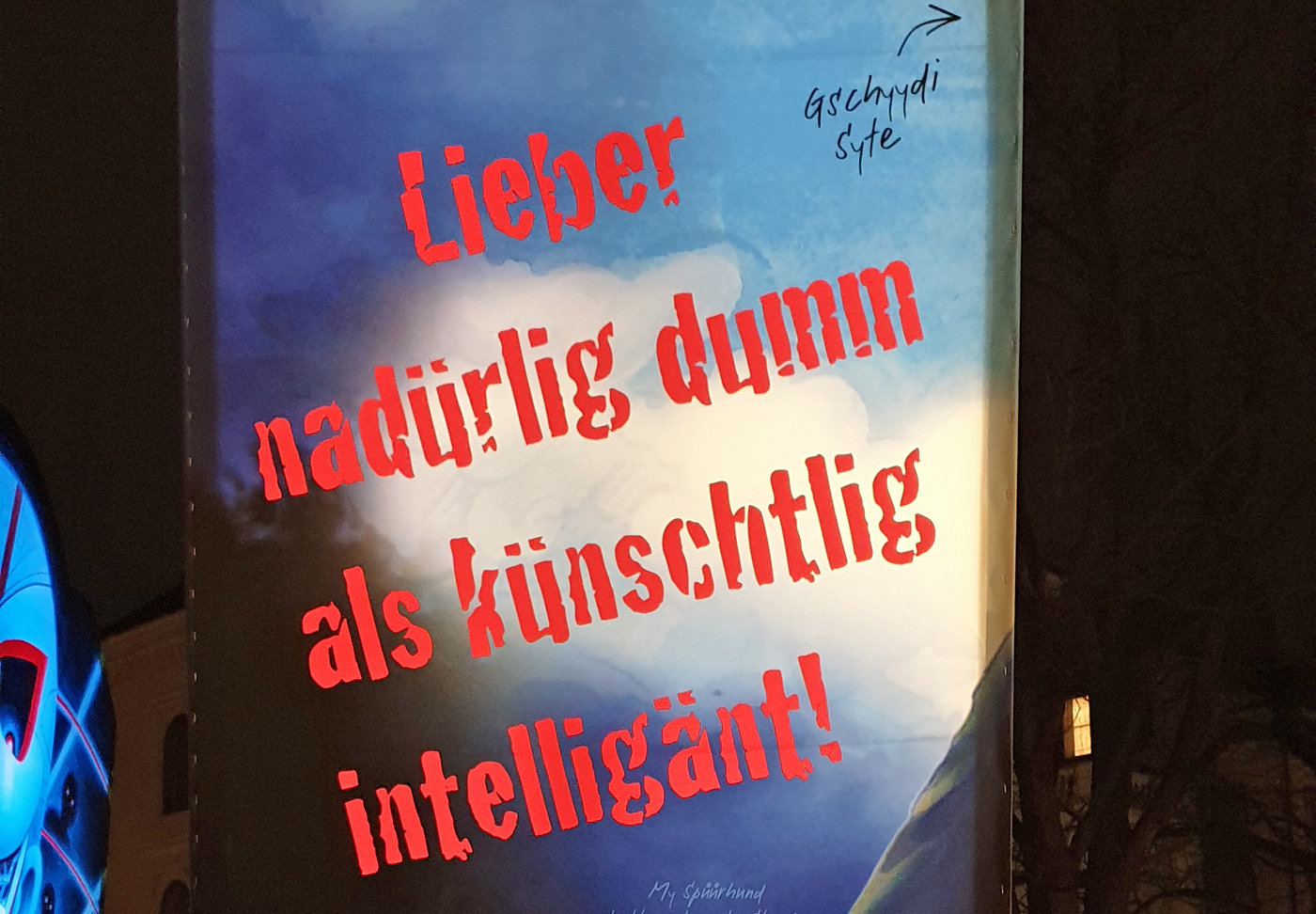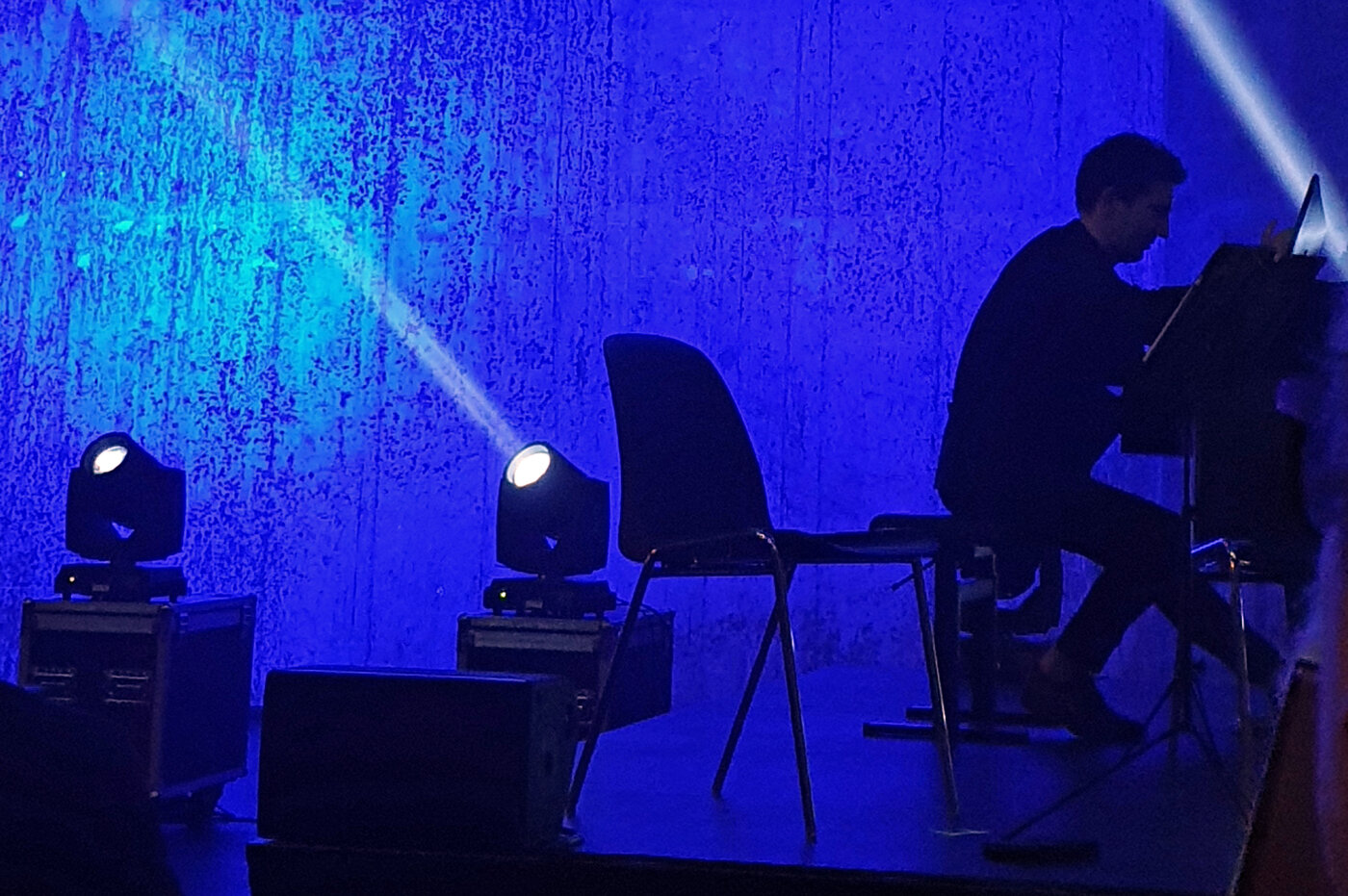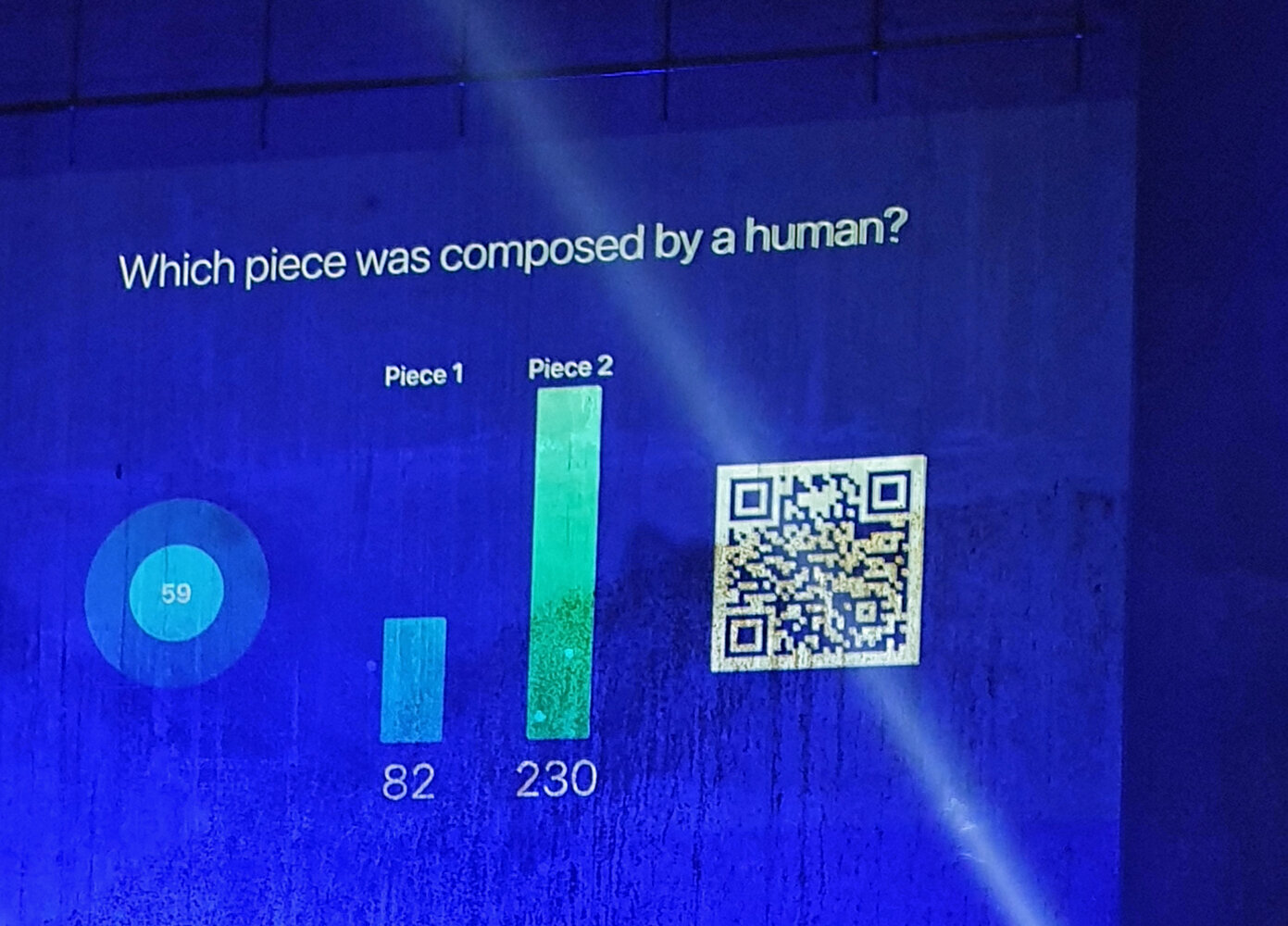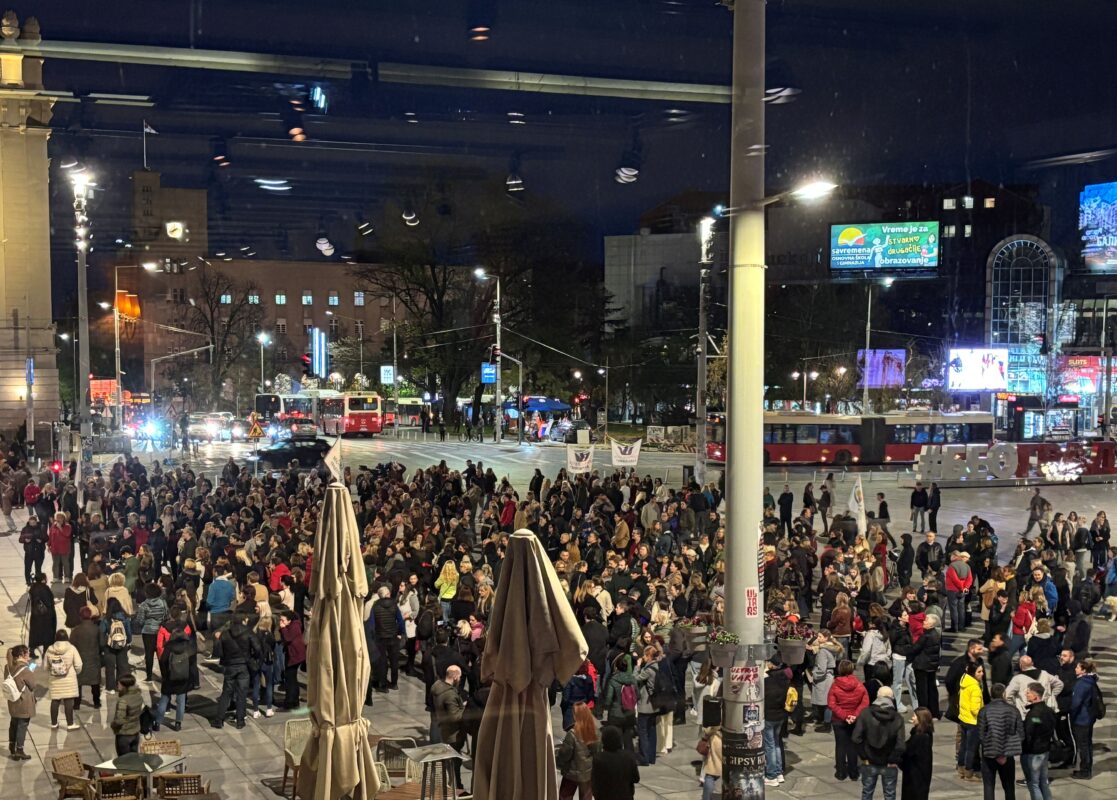Artificial art - Interfinity 2024
Artificial intelligence is on everyone's mind. It was one of the most frequent subjects at the Basel Fasnacht 2024. At the Interfinity Festival a few weeks later, the focus was on its impact on art, especially music.

Founded in 2018 in Basel under the name Basel Infinity Festival, the series under the direction of pianist and music manager Lukas Loss is committed to organizing interdisciplinary events between music and science. This year, a three-day cycle within the renamed Interfinity Festival from March 18 to 20 was dedicated to the topic of "Artificial Art", the possibilities of modern artificial intelligence (AI) and its effects on art and society. As there is still a great need for information on this topic, the most important aspects and problems of AI were discussed in a high-profile panel discussion in the new Novartis Pavilion on the first evening. Moderated by Gerd Folkers (ETH Zurich), Bianca Prietl and Heiko Schuldt (University of Basel), Damir Bogdan (CEO Quantum Basel), Frank Petersen (Head of Research Natural Products Novartis) and Jan Mikolon (Quantum Basel, IBM) took part in the discussion.
Unimaginable without it
It is a fact that AI has established itself in many areas. The revolution is as significant as the invention of the photocopier, the internet or the smartphone, for example, and there is no telling where the journey will take us. There is no way back and society is forced to come to terms with it. Whether strict regulation would make sense is debatable, as there are always loopholes. Ethical rules are usually short-lived in science.
AI is also used differently in different social models: In China, "social scoring", i.e. the total surveillance of citizens, is already a reality, while in Europe AI tends to be used to save time in job applications and tenders. AI has already established itself in science worldwide, but in the very near future, schools will also have to think hard about how AI can be used in a meaningful way. The University of Basel explicitly promotes the use of AI, and members of all faculties should be able to use it. Transparency should be a magic word in dealing with it; its involvement and contribution should be made clear.
Heiko Schuldt stated in an interview with the Basler Zeitung: "There is no need to be afraid [of AI]. However, it is very important to understand how AI works and what its limits are. What AI can do: correlate different pieces of information within large data sets. What AI cannot do: distinguish between true and false." AI cannot trigger creative processes on its own either, but could at least theoretically generate an exciting crime novel based on all existing crime novels. It was also agreed that AI should not be used unquestioningly, as we can see from the AI-supported career advice that women are advised to study psychology, while men are advised to study IT and engineering. The fact that AI will make various professions obsolete is a problem that should not be neglected, just like the reduced working week in the future. Will people be able to do something useful with the time they "save"?
Artificial paradises
On the second evening, the Swiss writer Alain Claude Sulzer presented a witty text on the subject of "Artificial paradises". Paradise can present itself in very different ways: For the aged François Mitterand, it was probably an Ortolan dinner, for which fat bunting, small birds, are prepared in a grotesque, animal-torturing ritual to satisfy exquisite cravings. The three androids presented to the public in 1774 by the Neuchâtel watchmakers father and son Jaquet-Droz and their employees represent the pinnacle of sophisticated artificiality. These automatons, a scribe, a draughtsman and an organist, delighted European onlookers for decades.
August Engelhardt created a rather absurd artificial paradise for himself in the South Seas around 1900, where he only wanted to eat coconuts, which promised eternal life. He died prematurely - suffering from malnutrition and scabies - and the "cocovorous" sect he founded disbanded. Albert Hofmann's LSD, invented in Basel, was also a path to a problematic artificial paradise.
A counterpoint to Sulzer's essay was provided by piano works by Bach (arr. Siloti), Bartók, Ornstein and Scriabin, which were not created by the effects of drugs, but owe their independence to their preoccupation with folk music, the experience of emigration and an esoteric world view. The outstanding performer was the Belarusian pianist Denis Linnik.


Man vs. machine
The event concluded in the Voltahalle with a very well-attended evening of over 300 people, opened by Basel's Director of Education Conradin Cramer with a short speech and an interesting concept: five composers each created five-minute works in the style of Bach, Chopin, Brahms, Messiaen and Bartók for different ensembles. The Latvian composer Platons Buravickis "composed" counterparts with AI, interpreted by the same musicians. The interpretations were excellent throughout. Between the performances, Henry Legg gave a spectacular introduction to AI, supported by video art.
The audience could use a QR code to vote on which version of a piece they thought was man-made. It was interesting to see whether it would be possible to differentiate between them. In the end, however, the audience was not wrong about any of the works, although there were some excellent bars in the AI version of Messiaen, for example, that could have been written by the French master. The piano quintet in the style of Brahms by Johannes Raiser and especially the quartet for violin, clarinet, piano and percussion by Amador Buda in the style of Bartók were so convincingly composed that they could easily be played in a "normal" concert. Although this conclusion may seem like a platitude: one had the impression that the AI pieces sounded student-like and lacked emotional depth. But AI can still make progress ...








